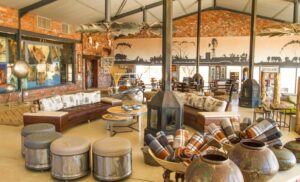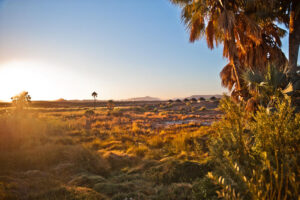Do not hesitate to give us a call. We team is here to talk to you.
+264 81 8211 521
info@namibiasafaritours.com
Tour Details:
This 8-day safari will take you to three of Namibia’s must-see natural wonders. We will visit the Okonjima Nature Reserve which is home to many AfriCAT, a carnivore sanctuary after that we move on to Etosha where you will be seeing wildlife, Africa’s best game viewing destinations. We head on to Palmwag best known for its local hiking trails. We will make our way up along the Skeleton Coast and turn inland into the dramatic and scenic Damaraland. Last but not least we will move on to Swakopmund where the desert and the coast come together.
• Upon Booking a 10% non-refundable Deposit is required to Confirm booking of Tour/Activity/
Accommodation or Car Rental.
• Remaining 90% should be paid not later than 30 Days Prior to Departure.
• If tour is within 40 days or less prior to booking full payment is required.
• Your deposit can either be made through a Bank Transfer, Online Debit or Credit Card Payment.
You will depart to Okonjima camp and stop by the next town in Okahandja to get some snacks and visit the craft center for Midway between the spectacular Etosha National Park and the capital city of Windhoek, lies the well-known Okonjima Nature Reserve. The 22 000 ha nature reserve is home to AfriCAT, a carnivore sanctuary, which gives the captive cats a second chance to be released back into the wild and become completely independent hunters in a protected area right in the middle of commercial cattle farmland.
Included activities
Overnight & Okonjima Plains Camp
Dinner, Bed and Breakfast


After breakfast, you’ll depart to Etosha National Park. Before you set out on your adventure, consult with your guide and an animal sightings book to determine the current movement of animals in the area to optimize your game-viewing experience. Detailed maps of the park are also available at each resort curio shop and filling station. In the heart of the park is the Etosha pan, meaning place of dry water, an extensive flat depression of about 3,107 square feet (947 m). This great white expanse is a place of shimmering mirages; seeing large herds of game in this setting makes Etosha a unique experience in Africa.
Included activities
Overnight & Etosha Safari Campsite
Dinner, Bed and Breakfast


After breakfast you will have a full day to continue with the activities.
Overnight & Etosha Safari Campsite
Dinner, Bed and Breakfast
Clients will get an early breakfast in the morning and depart to palmwag which is beautifully located along a palm-lined tributary of the Uniab River. Water is scarce in this area, so the river’s presence often lures elephants closer to the camps. Palmwag is situated halfway between Swakopmund and Etosha and is the ideal base from which to see the sights of the Kunene region or embark on one of the many local hiking trails.
Included activities
Optional activities
Overnight & Palmwag Campsite
Dinner, Bed and Breakfast


You will get an early breakfast in the morning and depart to Brandberg. Upon arrival, clients will go visit the White Lady Paintings.
Included activities
Optional activities
Overnight & Brandberg White Lady Camping
Dinner, Bed and Breakfast


You will departs to Swakopmund early morning from Brandberg to the coastal side of Namibia. It’s about 2 hours’ drive to Swakopmund. Once clients have arrived in Walvis Bay they will get lunch and depart to Swakopmund.
Included activities
Optional activities
Overnight & Hotel Pension à la Mer
Dinner, Bed and Breakfast


You will get early Breakfast and go on to the activity which is about a 2-hour drive. Located in the beautiful coastal town of Swakopmund with its colonial German character and architecture.
Included activities
Overnight & Hotel Pension à la Mer
Dinner, Bed and Breakfast
You will get breakfast and depart back to Windhoek.

The Okonjima Nature Reserve sprawls over 200 square kilometres of undulating plains, mountainous outcrops, and riverine thickets, and it is here that leopard (Panthera pardus), the most adaptable of all the wild cats, thrive.
Etosha National Park spans an area of 22,270 square kilometres (8,600 square miles). The Etosha pan, which covers an area of 4,769 square kilometres (1,840 square miles) is 23% of the total area of Etosha National Park
The massive Etosha National Park is located in northwestern Namibia, in the country’s Kunene region.
Travelers planning on visiting Etosha in the winter months have one less thing to worry about: the park is entirely malaria-free during the dry season, when mosquitos are unable to breed. However, in the wetter months from November to June, travelers are encouraged to take anti-malaria medication. The risk of contracting malaria in Etosha, though, is incredibly slim.
The largest salt pan in Africa, the Etosha Pan is a dry lakebed that can be seen from space. Believed to have been formed 100 million years ago, some of the park’s wildlife use the pan as a salt lick in the dry season, and migrating flamingos flock to the area during particularly rainy wet seasons.
It shows some of the most common and rarest wildlife species.
Yes
May to August
Sun protective clothing with an effective sunscreen and a wide-brimmed hat. The sun on the white sand also makes sunglasses useful to combat the glare while looking for wildlife and birds. Binoculars Are An Etosha Game-Viewing Essential: The best game-viewing happens with the help of high-quality binoculars.
Sleeping on top a car gives you an added sense of security in the wilderness. Generally speaking, camping is safe, even on the non-fenced campsites. Most animals do not perceive tents as tents with people inside, but interpret them as large animals or objects, hence an attack is very unlikely.
The breath-taking mountainous region of Damaraland is home to an assortment of desert-adapted wildlife such as elephant, rhino, zebra and lion, which eke out an existence in this near-barren landscape.
Damaraland is part of the Kunene Region in the north-west of Namibia and is located between the Brandberg and the little village of Sesfontein.
The Damaraland is an area of geological wonder, ancient rock art and beautiful, wild landscapes. It’s also home to one of Africa’s largest populations of free-roaming black rhinos and Namibia’s famous desert elephants.
Generally, they are in excellent condition. Most of the roads and towns are well signposted. Major roads are tarred; the rest are gravel.4
“Timeless” is the word most often used to describe Swakopmund, a historic German colonial era town that is a favourite holiday destination for both locals and visitors.
Swakopmund is a perfect base for exploring the coast, from taking boat and kayaking trips from Walvis Bay to spot the abundant marine life of the Atlantic Ocean to going birdwatching at Sandwich Harbour further south.
No, because we the company provide you with a mattress, pillow and sleeping bag if needed.
Yes, there are factors beyond our control mostly with accommodations either they are fully booked and we now need to look for a substituted which means that the itinerary may change, and each tour operator reserves the right to do this. Generally, these changes are minor, and we will do our best to advice clients.
Damaraland is a desert region with less than 100 mm of rain annually, the whole area can become green and lush with grasslands during the March to May rainy season turning the whole area into a scenic highlight.
Damaraland has a harsh, semi-desert climate. Daytime temperatures can spike to well above 38°C/100°F during summer (November to April), with winter nights falling below freezing (October to April). The Wet season occurs during summer
The Himba people mainly live in the North-West part of Namibia. Please remember when you visit the tribes to show respect to them and their cultures and views. They are also changing to the environment they live in today, so do not be surprised to see them in modern clothing or occasionally clutching a cell phone! Please also be aware that whilst we endeavour to arrange walks and meetings with the tribes, they choose what and when they wish to do things, which can occasionally be out of our control.
WhatsApp uns
